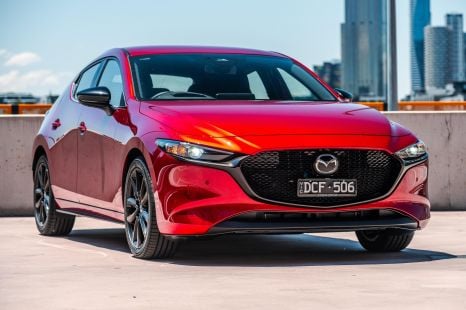

Josh Nevett
2025 Mazda 3 G25 Evolve SP review
2 Months Ago
Matt Campbell heads to Europe to try out Skoda's new flagship sedan and wagon, ahead of their arrival in Australia early next year.
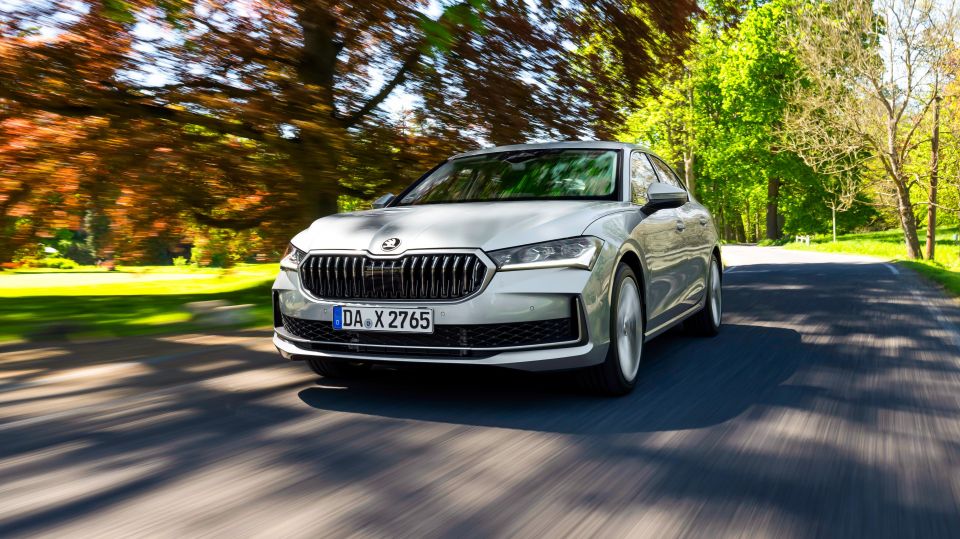
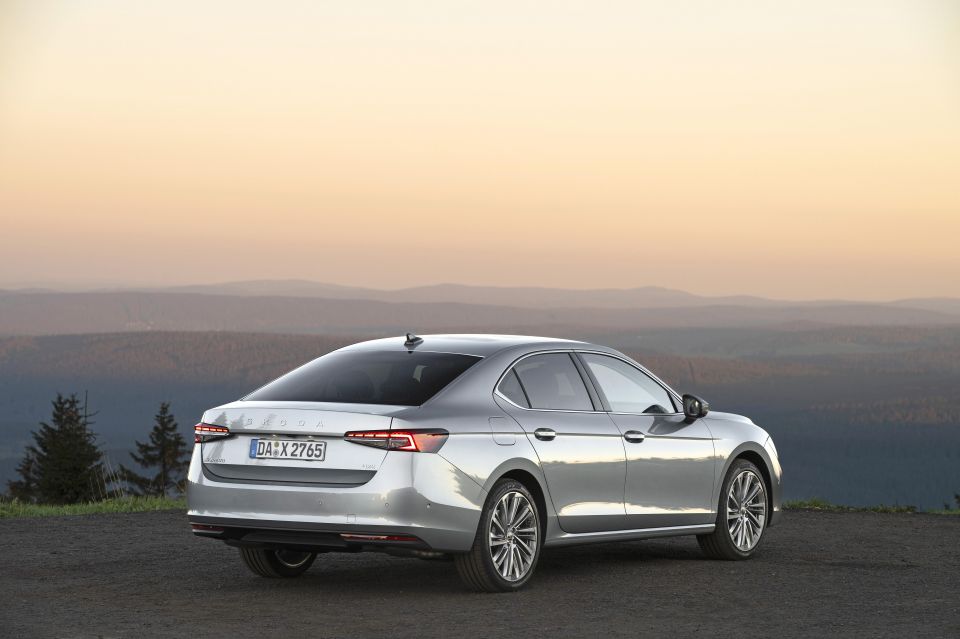

Quickly see how this car stacks up against its competition. Select any benchmark to see more details.
Where expert car reviews meet expert car buying – CarExpert gives you trusted advice, personalised service and real savings on your next new car.
Australia is about to see the launch of a new car, and that’s exciting – yes, a car. Not an SUV. Not a 4×4. Not a ute. But a regular old car.

It’s the new-generation 2025 Skoda Superb, and while it might not be the most desirable vehicle choice in the Australian market increasingly dominated by high-riding heavy vehicles, the Superb has always offered the best you can get from the Czech brand as the hero of its model range.
So, does it live up to its illustrious name? We’ve just sampled the latest version in Germany – due here next year – to figure that out.
We haven’t got confirmed pricing for the new-generation Skoda Superb as yet.
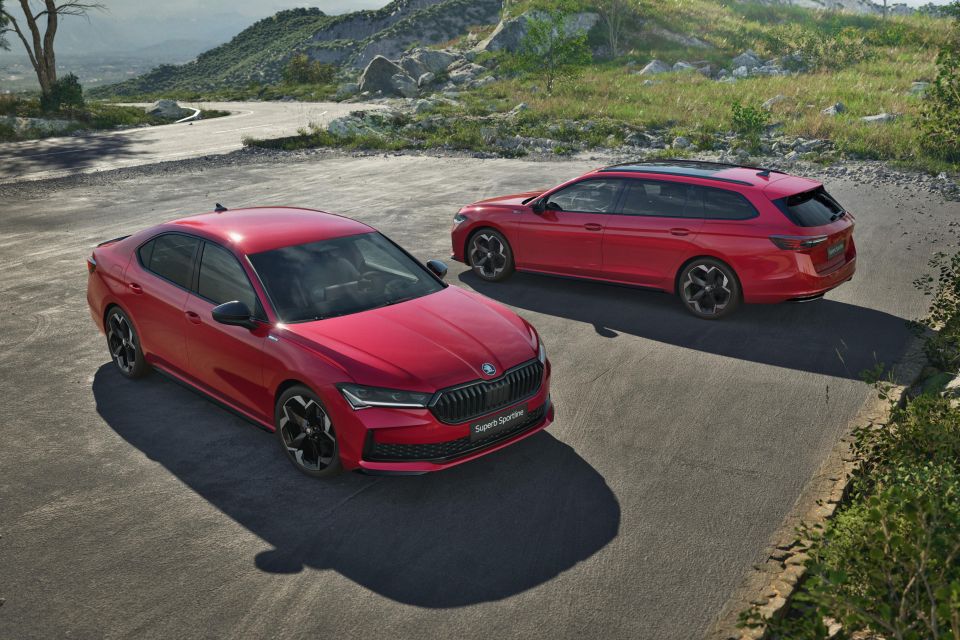
However, we have been told that the only model to make it Down Under will be the Sportline spec, as is currently sold exclusively by the brand locally.
And, it would seem Skoda is aiming to increase the spec but not boost the price too much for this new model.
The current Superb Sportline is offered in a liftback/sedan body style from $69,990 drive-away, and the more popular wagon is an additional $2000 ($71,990 drive-away).
Don’t expect it to move too far from that kind of positioning with the new-gen range, despite increased levels of tech and equipment.
Buy your new car without the stress. It's fast, simple and completely free.
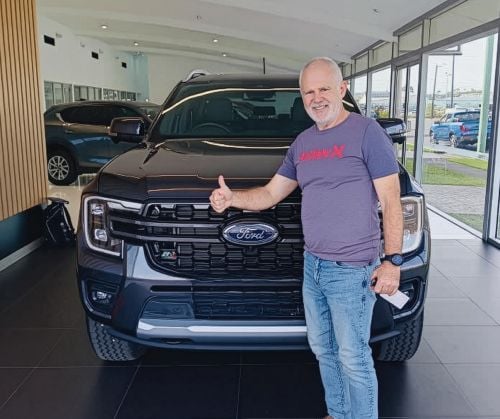
Great service from Travis and team, second time I have used this business would not hesitate to recommend them to anyone
Craig C.
Purchased a Ford Ranger in Sunshine Coast, QLD
CarExpert helped Craig save $7,224 on his Ford Ranger, now let us save you on your next new car.
Get your BEST priceI personally thought the previous version of the Superb still felt reasonably fresh and plush inside, but this new version has taken that ball and run with it into a new field.
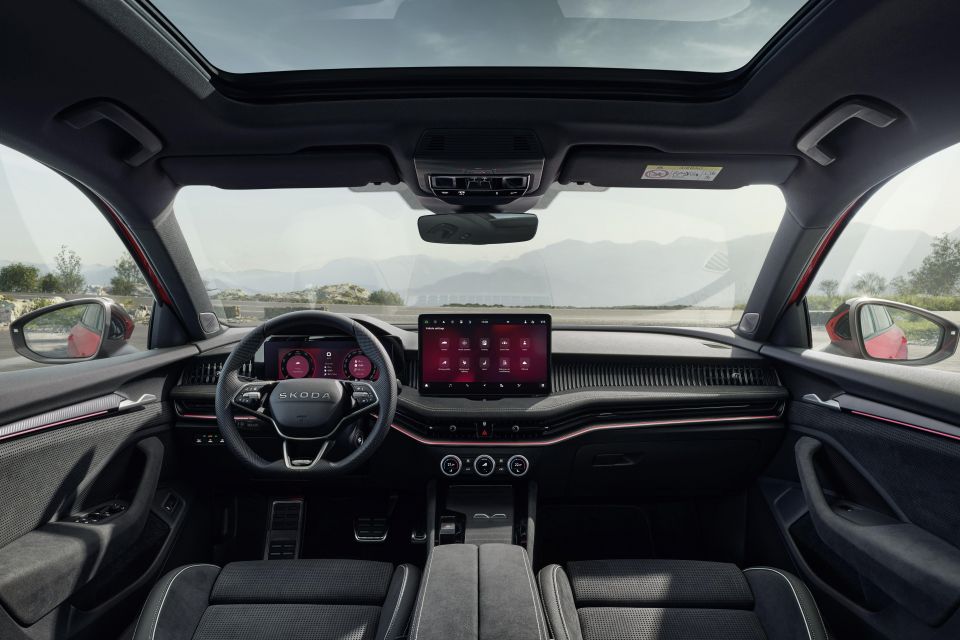
I’m not saying that this car offers as much bling as a Benz or the same level of technical elegance of an Audi, but the cabin design and finishes are easily the best I’ve seen from the brand.
And it’s not a tech overload, either. Sure, there’s a new 13-inch touchscreen media system with navigation, wireless Apple CarPlay and Android Auto, and a fully digital instrument cluster as well. But for the most part, it’s all simple, and the controls are manageable and learnable within minutes.
There aren’t buttons or dials below the big screen, which is fast to load and has an array of menus and controls that you can filter through.
But there are some Smart Dials down below which make interacting with it far simpler than having to bungle your way through the menus on the display.
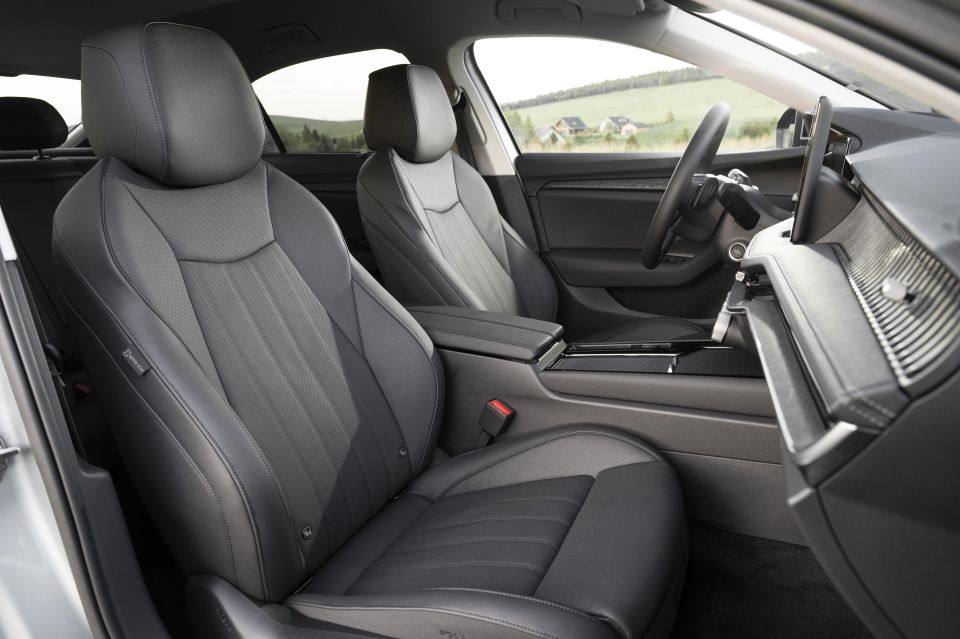
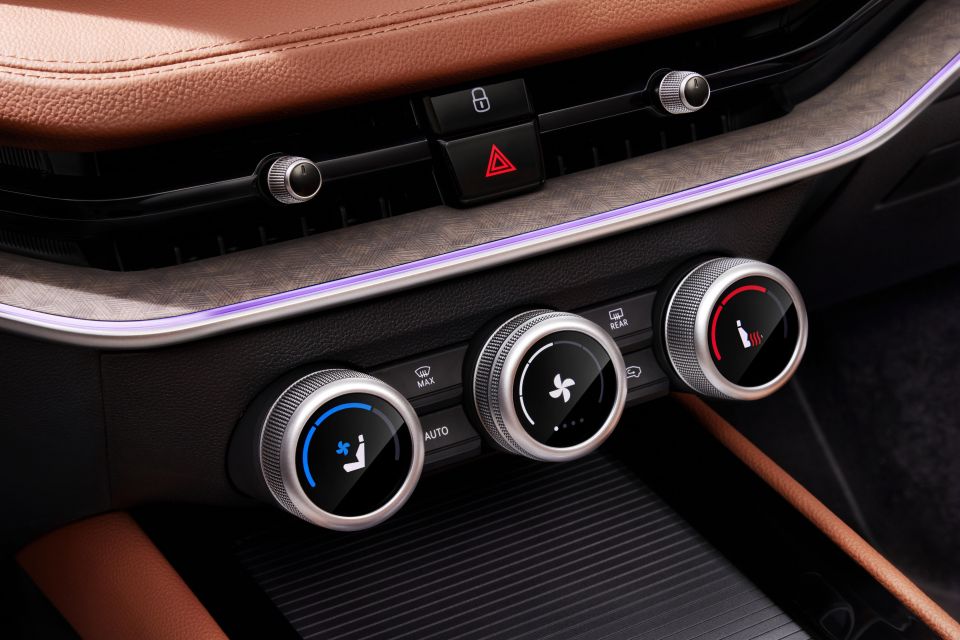
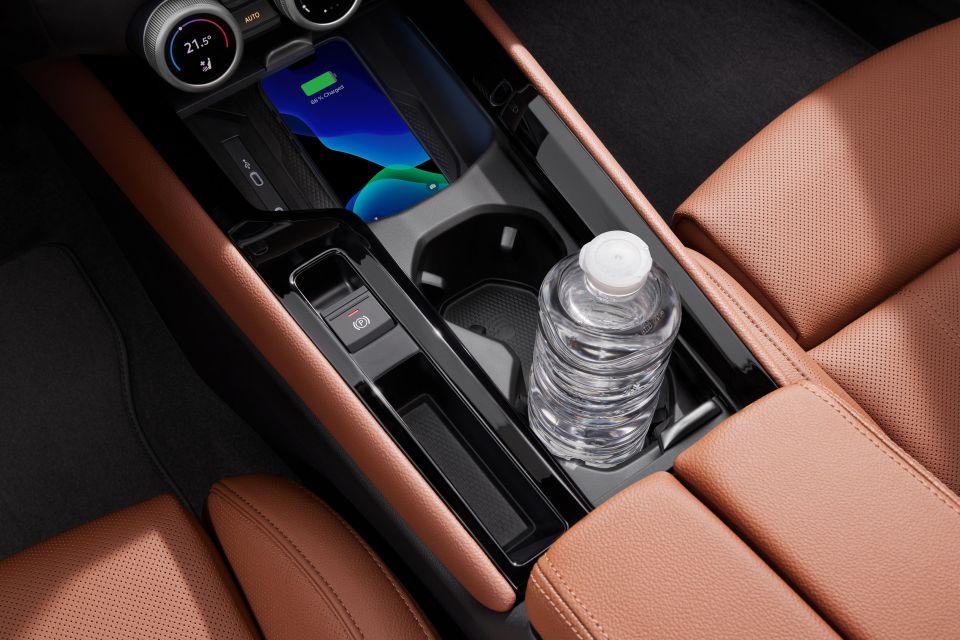
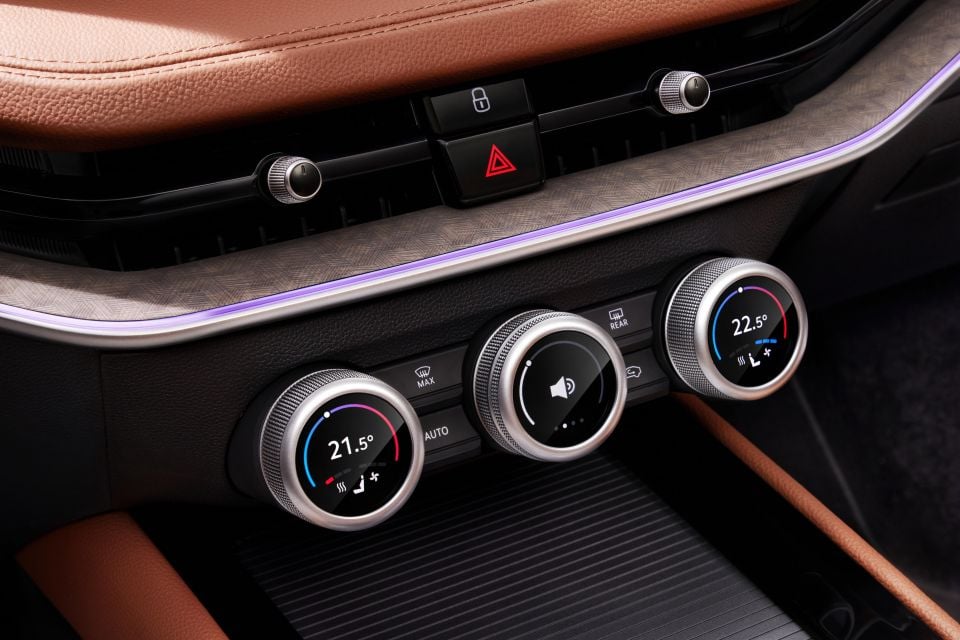
The Smart Dials are configurable, tactile controls with small displays inside that can allow you adjustment to certain elements of the car.
For instance, the middle control can be customised to be a fan speed dial, air flow controller, volume knob, drive mode selector, or a map zoom controller. The two that flank it are for your climate control settings, and you push the dial in to adjust seat heating and cooling, too.
It might seem complex but it really does come naturally compared with some other systems I’ve sampled that rely more heavily on the screen itself. My only wish is that they felt a little more like Honda’s dials, with a bit more of a mechanical movement.
As you’d expect, there are plenty of interior smarts beyond that. The covered centre console bin features adjustable shelving with a hidey-hole for the brilliant screen wiper, which gets rid of fingerprints immediately.
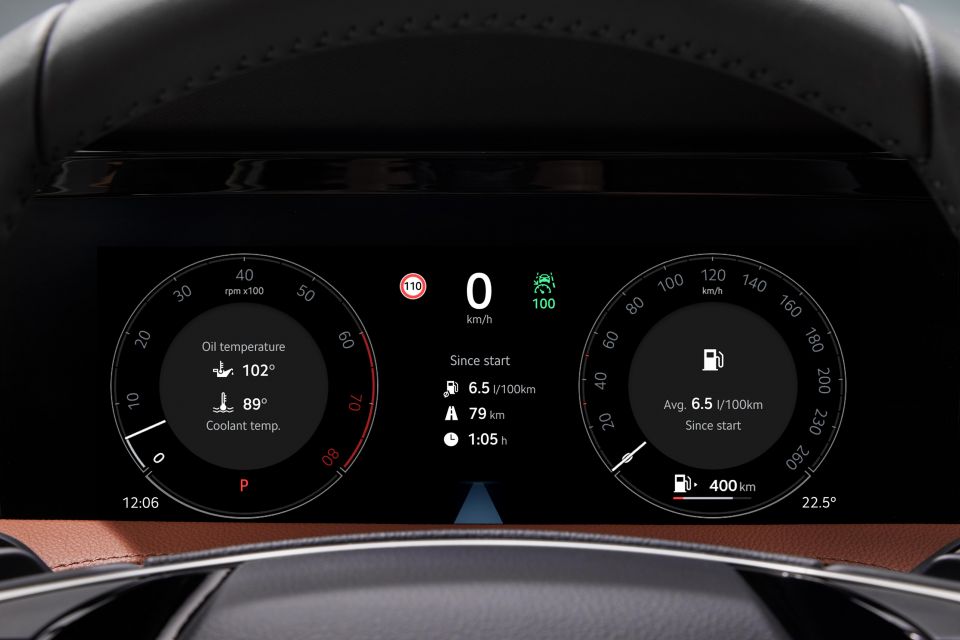
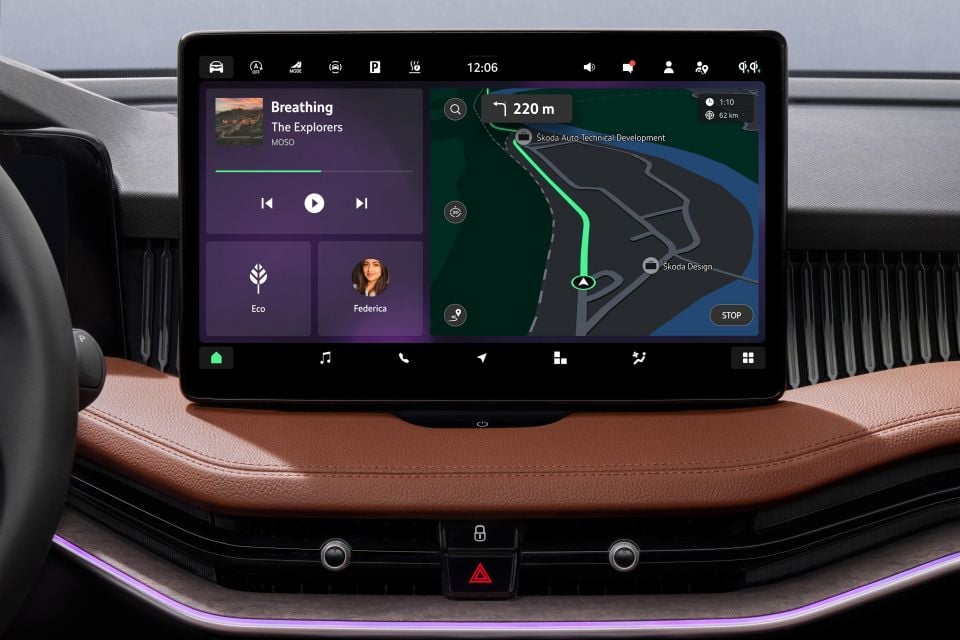
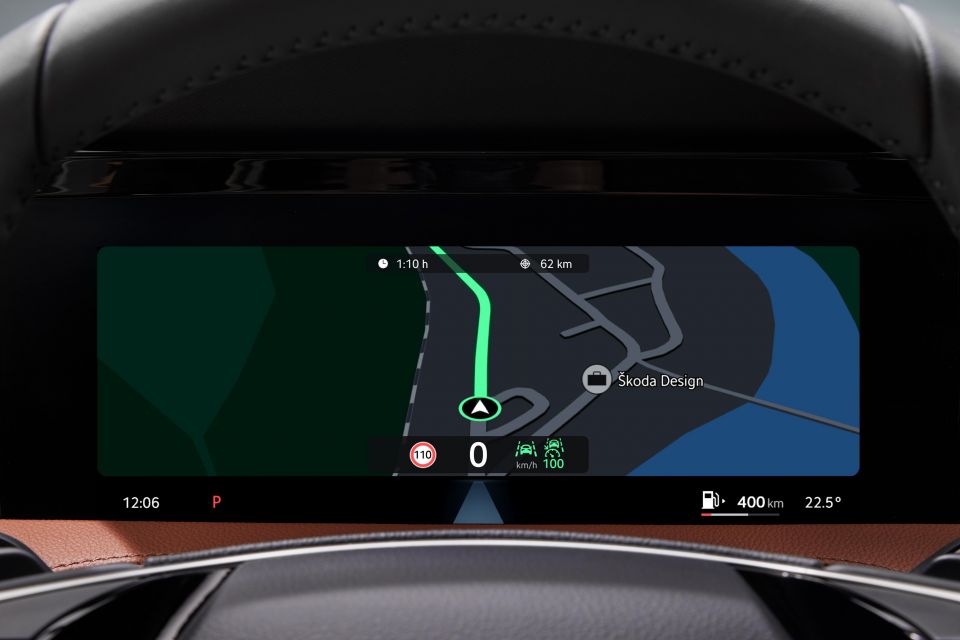
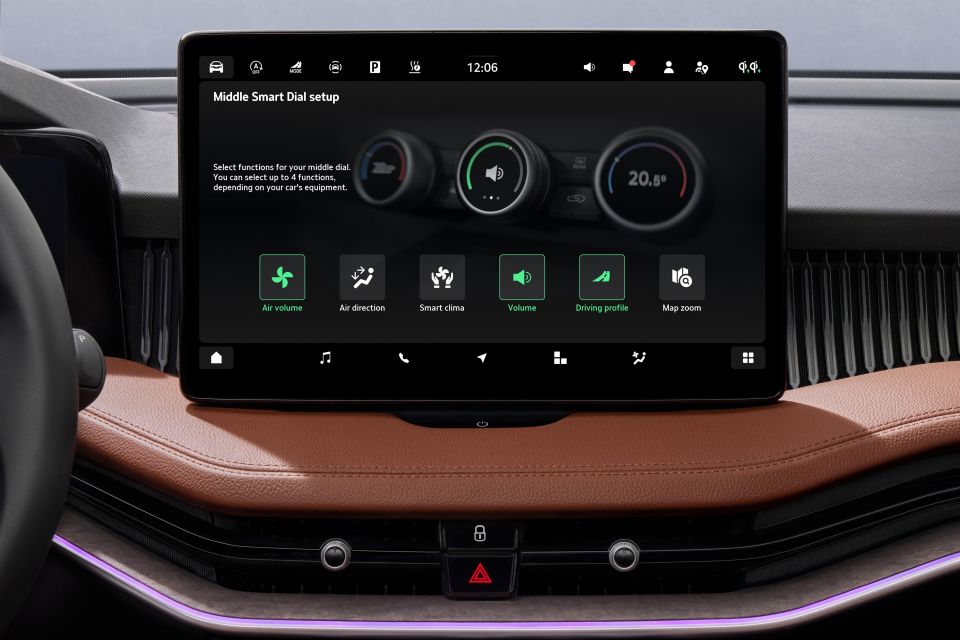
There are cup holders between the seats, a wireless phone charger, USB-C ports, and lined bottle holders in the doors, too. And the quality of the finishes and materials is top-notch.
The vehicles on test in Germany may not necessarily be representative of what we’ll get in terms of trim options, but I was left feeling confident that the soft-touch plastics and leather-ish finishes on the seats were convincing enough for the expected price.
In the second row there is ample space for a six-footer (I’m 182cm) to slide in behind someone of similar size, and still have inches of knee room, enough toe wiggle space, and heaps of shoulder room, too.
Three adults across the back won’t be an issue, despite a small transmission tunnel intrusion. If you’re thinking of this as a family hauler, there are ISOFIX points in the window seats and three top tethers, too – and you’ll be able to fit three kid seats in. It’s a very broad cabin.
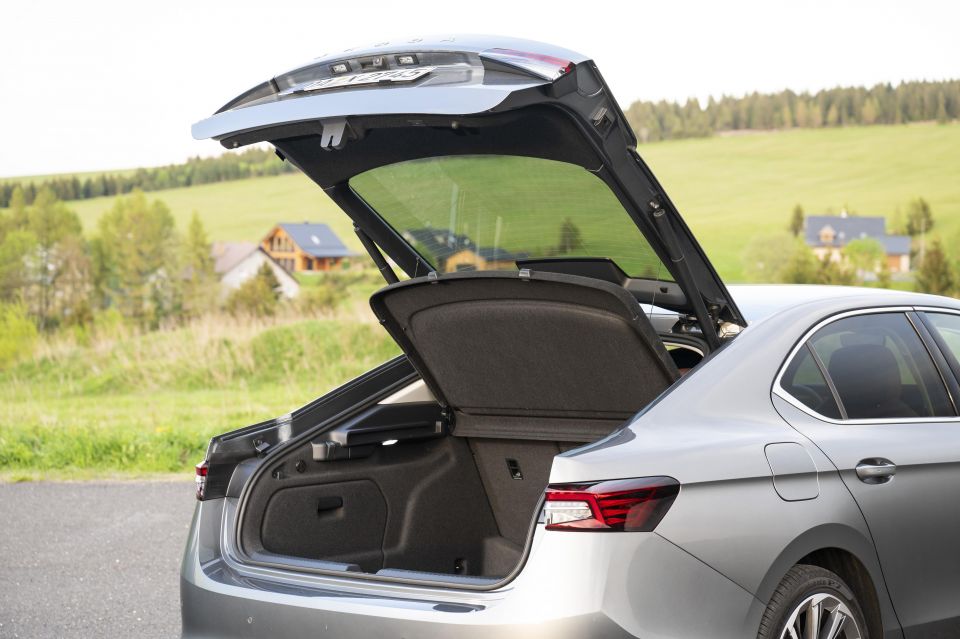
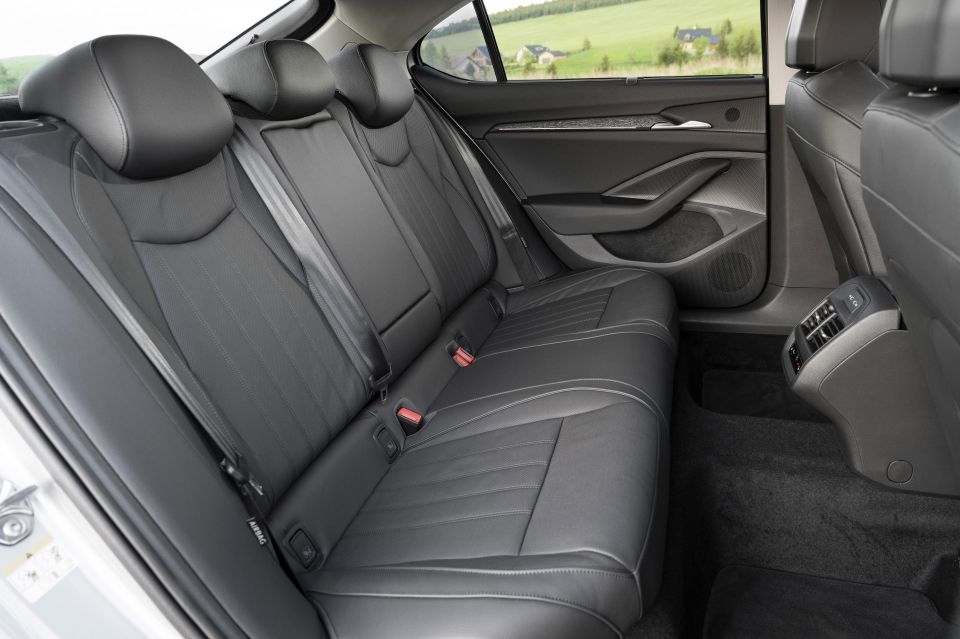
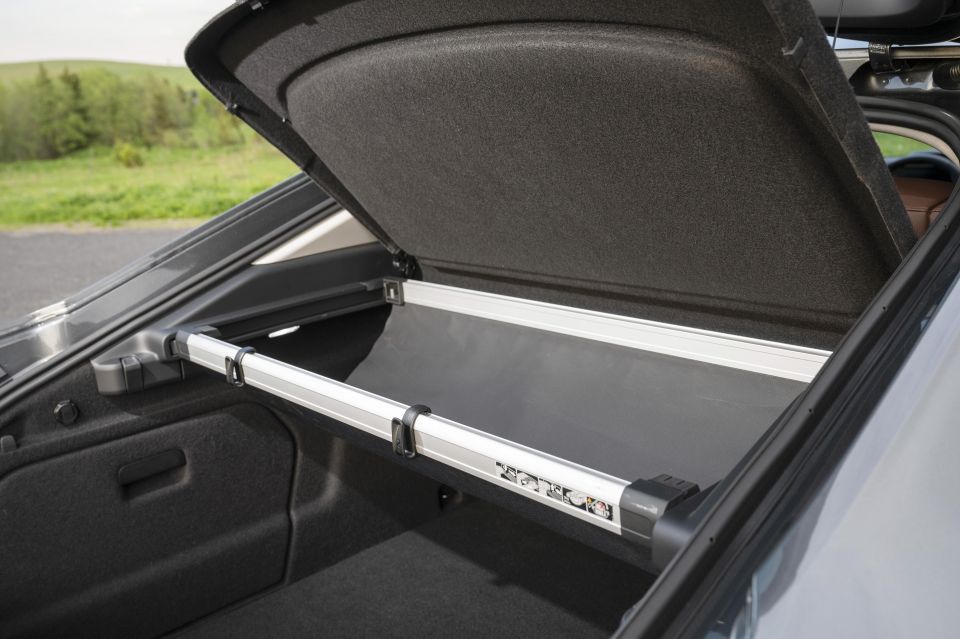
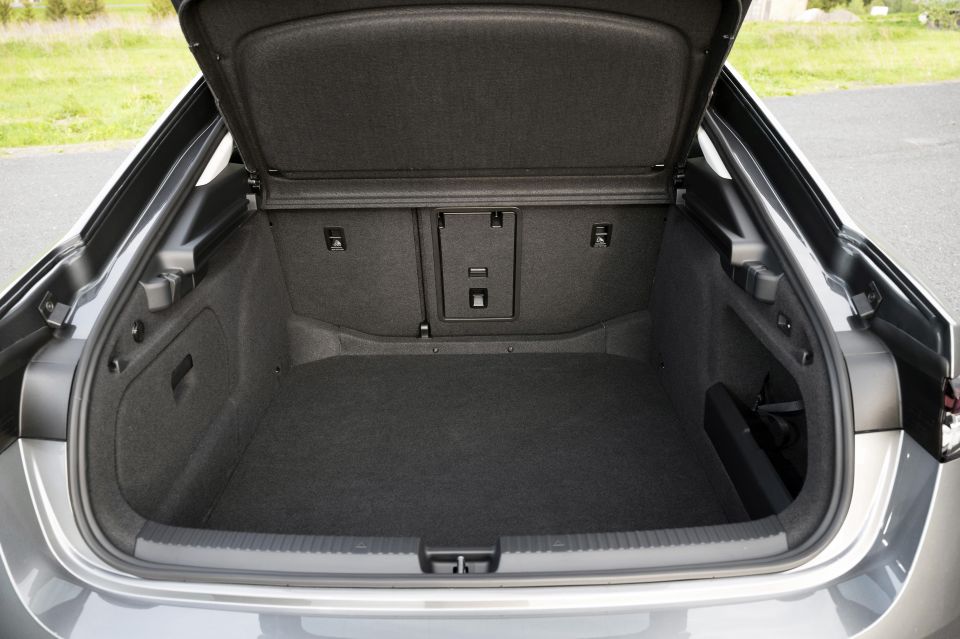
Great features in the back include map pockets with device holders, big bottle holders, integrated window shades, a flip-down armrest with cupholders and a book/device holster, and dual-zone climate control with outboard seat heating. You can expect that standard in Aussie cars, too.
The boot? Bloody massive.
The Superb Liftback has 645 litres (expanding to 1745L with the rear seats folded), while the Combi (Wagon) I tested had a hugely practical 690L of capacity (1920L with seats down).
The squared-off space offers easily enough room for the luggage of four adults (as we had), and there are fold-out shopping bag hooks, storage caddies on one side and a cupboard on the other; and topping it off there’s a space-saver spare wheel under the boot floor, too.
The 2025 Skoda Superb Sportline in Australia will be powered exclusively by a new ‘195TSI’ powertrain when it arrives next year, which technically is a downgrade from the outgoing model’s ‘206TSI’ designation.

If that doesn’t mean anything to you, this might help – it’ll have a 2.0-litre four-cylinder turbo-petrol engine with 195kW of power and 400Nm of torque.
Standard is a seven-speed dual-clutch automatic (DSG) with all-wheel drive. Performance looks promising, with a claimed 0-100km/h time of 5.6 seconds for the liftback, and 5.7 seconds for the wagon.
Fuel consumption is yet to be confirmed, but Euro-spec models are pegged between 7.6 and 8.2 litres per 100km for 195TSI models, with 95 RON premium unleaded required as a minimum.
Towing? You bet – unbraked capacity is 750kg, and braked towing is expected to be 2200kg.
I didn’t drive the 195TSI Sportline we’re getting during this international preview– the vehicle I sampled was a 2.0-litre turbo-diesel. Skoda hasn’t started building the petrol models yet.

So, I won’t dwell too much on the 142TDI powertrain that was tested, other than to say it was relatively refined, urgent, and showed great efficiency after hours of punishment (6.2 litres per 100km).
What I can tell you more about is the chassis. This new Superb is built on the stiffer MQB Evo platform, which is not only designed to be stronger and offer better handling through increased rigidity; it also has improvements to noise, vibration and harshness as a priority.
And that was evident during my drive, where it was relatively hushed in most situations, despite having a bit of tyre roar over some of the rougher roads I drove on. I had to go hunting for a bad surface, because so many of the roads in Bavaria are sublime.
The new suspension system employed in this test vehicle — which will be offered standard in the Sportline models we get — incorporates a more sophisticated damper adjustability, with 15-stage configuration available.

So, if you dial up the Individual drive mode, you can pick the level of firmness or subtlety you prefer from the suspension. Otherwise, you can choose from a number of other modes like Comfort, Eco and Sport, all of which adjust the steering, ride, gearing and engine performance.
Across a mix of urban, autobahn, arterial roads and some mountain passes, I found it hard to fault the capability and comfort on offer in this car.
It has some electronic trickery built in to help it feel like it hangs on more in corners, using torque-vectoring by braking to nibble at the front inside wheel when you’re turning through twisty bits.
The body remains relatively flat in assertive driving, a well, and the all-wheel drive system in the test vehicle gave it plenty of push out of corners.
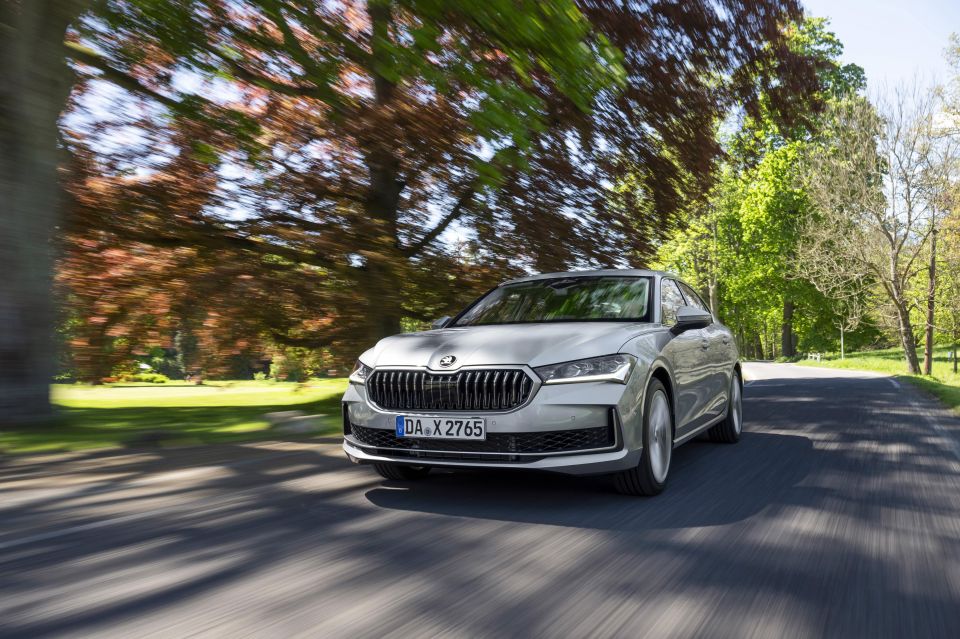
With honest and predictable steering that offered a good amount of fun factor in the bends and a level of daily duty-friendliness that you’d expect of a car like this; it promises to be perhaps even more enticing in Sportline trim, as that version gets the Progressive Steering system and a sportier lowered suspension setup compared to the vehicle on test.
What impressed me most about the drive though, was the ease of use of the safety system disablement – though I’m not saying switching off things like lane keep assist and speed sign recognition systems is what everyone should do.
But for me, I prefer the natural feel of the steering when I’m in charge, not the car, and the chiming of the speed sign system whenever I was 1-2km/h over the limit bugged me.
Thankfully, you simply use the buttons on the steering wheel and adjust the settings on the driver’s display, so again no mucking around with the touchscreen to get it tailored to how you like it… but yes, you do have to turn them off each time you restart the car if you don’t want them on.
Standard equipment hasn’t yet been confirmed for the Australian market as yet, but as a guide, below is what you can expect to be offered standard in the new Superb Sportline when it arrives in 2025.
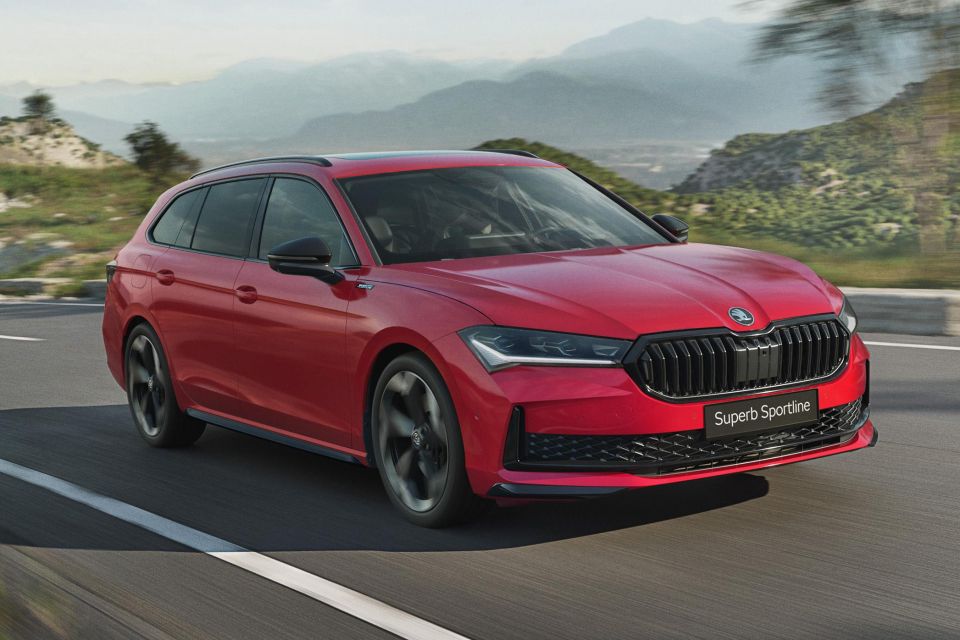
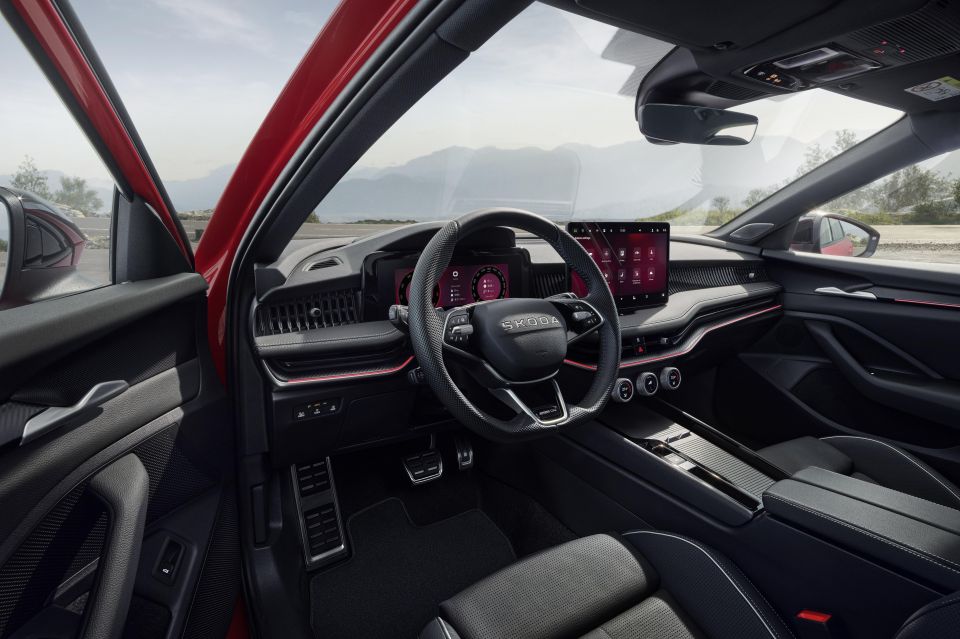
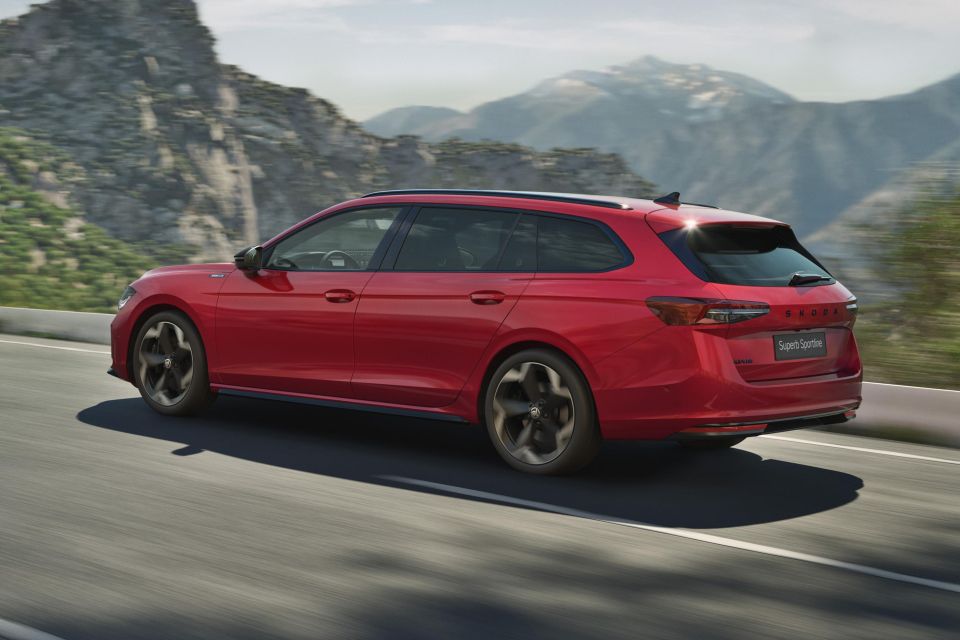
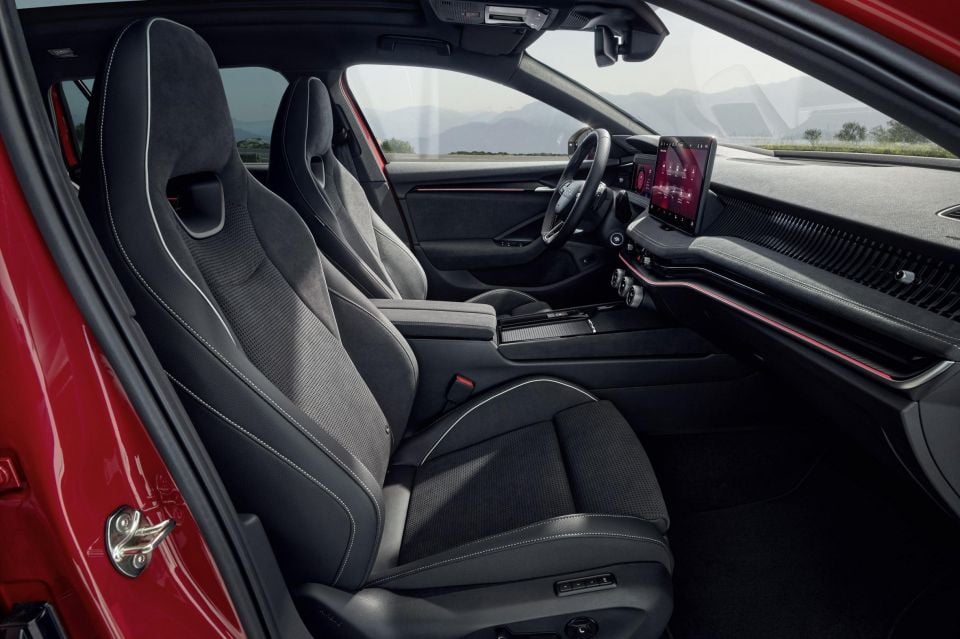
Equipment highlights:
A five-star Euro NCAP safety rating was awarded to the Superb in 2024 – no doubt an ANCAP rating will follow when the new Superb arrives in Australia next year.
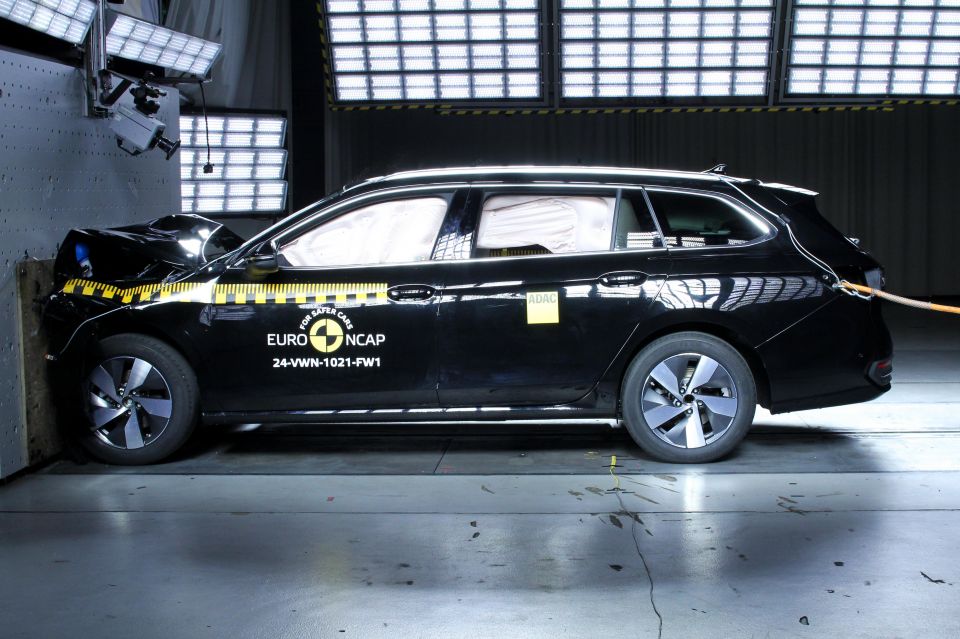
It achieved 93 per cent for adult occupant protection, 87 per cent for child occupant protection, 82 per cent for vulnerable road user protection and 80 per cent for its safety assist systems.
Here’s a rundown of the standard safety technology:
The new Superb is expected to be offered with up to 10 airbags – dual front, driver’s knee, front centre, front side, rear side and full-length curtain coverage.
Skoda is still the only European brand in Australia to offer a seven-year, unlimited-kilometre warranty.
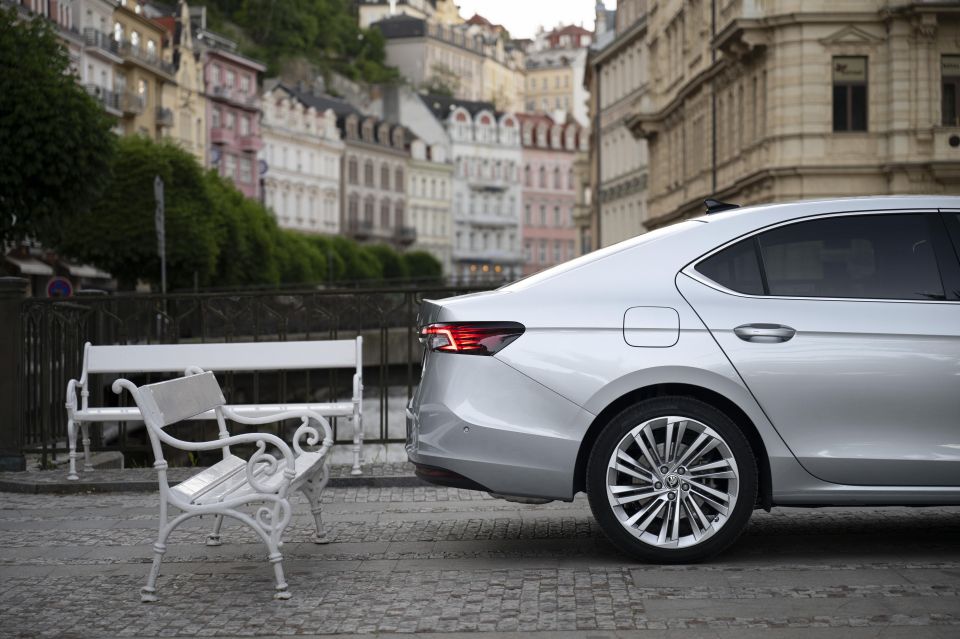
Where expert car reviews meet expert car buying – CarExpert gives you trusted advice, personalised service and real savings on your next new car.
Servicing is expected to be due every 12 months or 15,000km, whichever occurs first, as per the brand’s other offerings.
Buyers will be able to choose to pay for servicing on demand under a capped-price servicing program, or by prepaying for their maintenance in a five- or seven-year block. Pricing is still a while away, at the time of writing.
Skoda also offers the option of a guaranteed future value for the vehicle if you finance through their in-house loans operation, which might be enticing for those concerned about resale values.
And if you prepay your servicing, that might add to the resale, because you can pass it on to the next owner with maintenance already covered.
Buy your new car without the stress. It's fast, simple and completely free.

Great service from Travis and team, second time I have used this business would not hesitate to recommend them to anyone
Craig C.
Purchased a Ford Ranger in Sunshine Coast, QLD
CarExpert helped Craig save $7,224 on his Ford Ranger, now let us save you on your next new car.
Get your BEST priceWhile the model I tested wasn’t quite representative of the model we’ll get in Australia around May next year, I can confidently say it will be worth the wait for a buyer who wants a car, not one of those other things that sits up high.

This is a terrific new car – Superb, even.
Click the images for the full gallery
MORE: Everything Skoda Superb
Where expert car reviews meet expert car buying – CarExpert gives you trusted advice, personalised service and real savings on your next new car.
Matt has more than a decade of experience in automotive journalism, and loves exploring the pros and cons of new cars, delving into deep-dive industry stories, and going for a drive just for the fun of it.


Josh Nevett
2 Months Ago
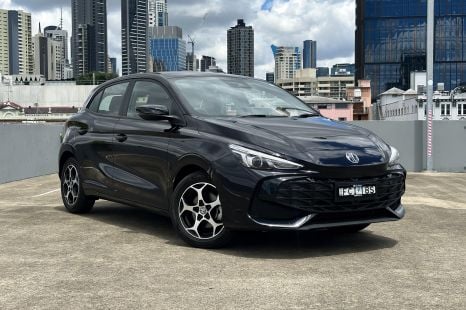

William Stopford
2 Months Ago
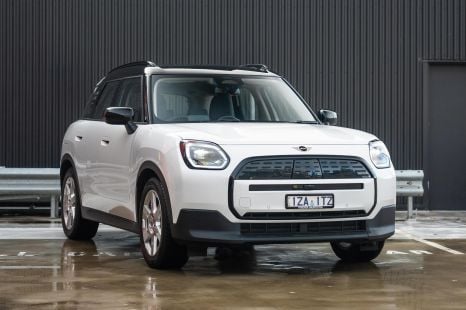

Josh Nevett
2 Months Ago
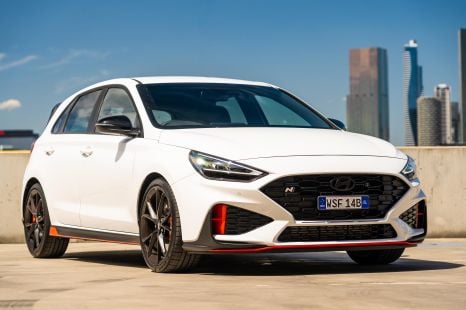

Josh Nevett
2 Months Ago
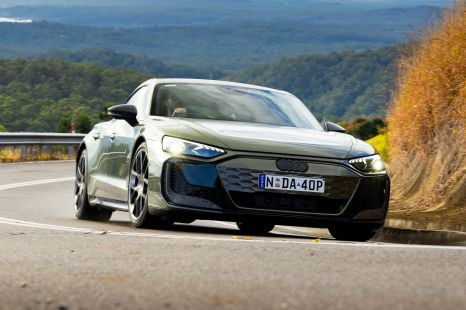

James Wong
2 Months Ago
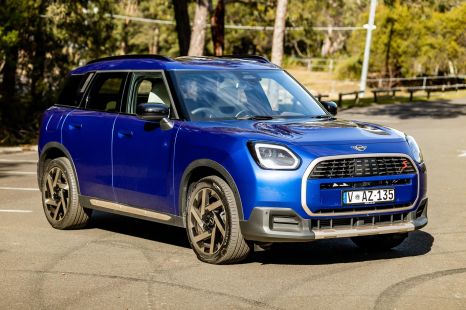

Matt Campbell
1 Month Ago